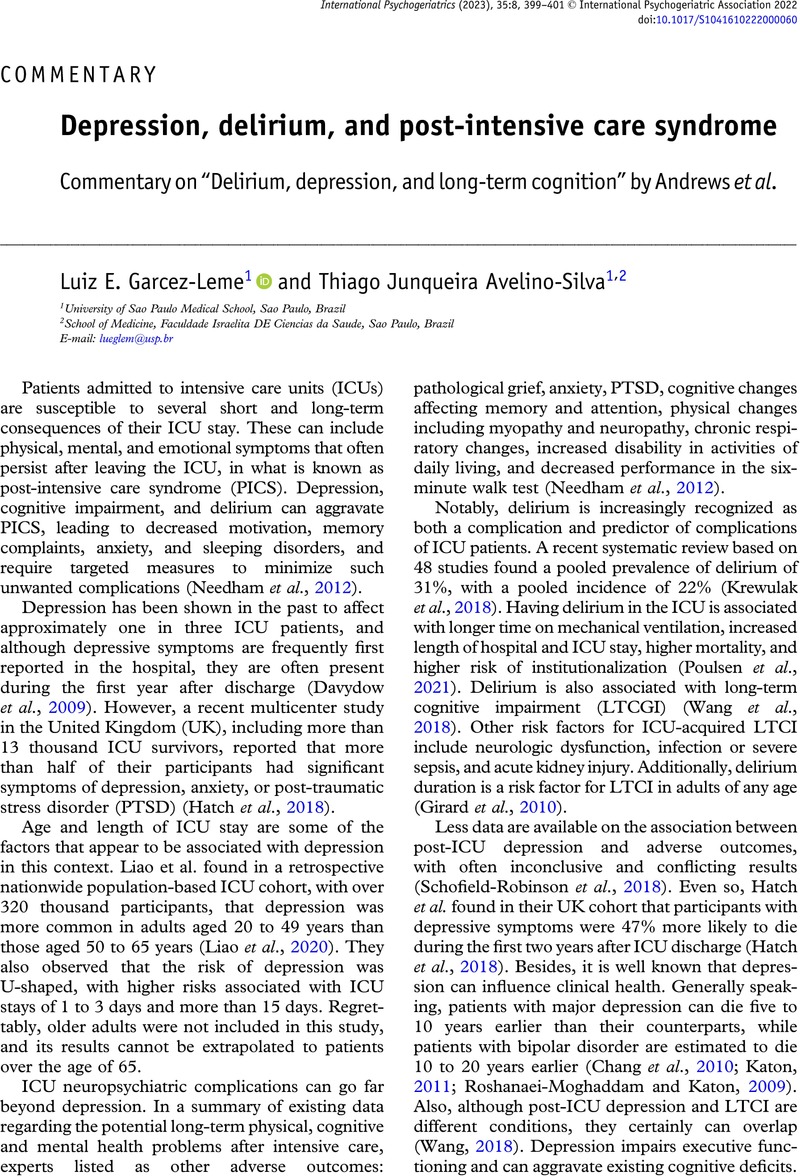Crossref Citations
This article has been cited by the following publications. This list is generated based on data provided by Crossref.
Ramnarain, Dharmanand
Pouwels, Sjaak
Fernández‐Gonzalo, Sol
Navarra‐Ventura, Guillem
and
Balanzá‐Martínez, Vicent
2023.
Delirium‐related psychiatric and neurocognitive impairment and the association with post‐intensive care syndrome—A narrative review.
Acta Psychiatrica Scandinavica,
Vol. 147,
Issue. 5,
p.
460.
Gao, Shuang
Liang, Xifeng
Pan, Zhixiu
Zhang, Xiuping
and
Zhang, Liwen
2025.
Effect size estimates of risk factors for post-intensive care syndrome: A systematic review and meta-analysis.
Intensive and Critical Care Nursing,
Vol. 87,
Issue. ,
p.
103888.



